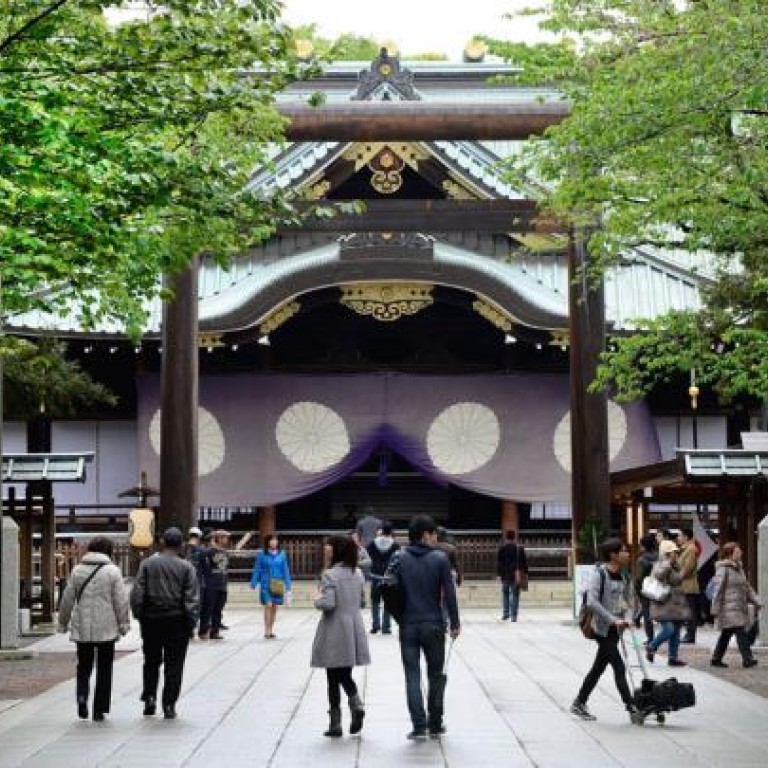
Shinzo Abe should stay away from Yasukuni shrine
Japanese politicians have a simple enough calculation when deciding whether to honour the country's war dead at the Yasukuni Shrine. To go is an act of nationalism that will win points with right-wing voters, but it is guaranteed to further damage already inflamed relations with China. The more than 170 cabinet ministers and members of parliament who in recent days have made the visit showed how little they regard good ties with Beijing. Amid fresh tensions over the Diaoyu Islands, Prime Minister Shinzo Abe would be foolish indeed to follow their lead.
Japanese politicians have a simple enough calculation when deciding whether to honour the country's war dead at the Yasukuni Shrine. To go is an act of nationalism that will win points with right-wing voters, but it is guaranteed to further damage already inflamed relations with China. The more than 170 cabinet ministers and members of parliament who in recent days have made the visit showed how little they regard good ties with Beijing. Amid fresh tensions over the Diaoyu Islands, Prime Minister Shinzo Abe would be foolish indeed to follow their lead.
The prime minister's deputy, Taro Aso, was among those who went to the shrine at the weekend, prompting South Korea's foreign minister to cancel a scheduled trip to Tokyo. Abe further exacerbated events by sending religious ornaments in the name of the prime minister as an offering. Using his office rather than his own name is arguably more offensive to neighbours, but he has at least shown regard for sensitivities by not making a personal visit. He has a proven record in that regard; while he has been to the shrine numerous times as a politician, he stayed away during his last time as prime minister in 2007, in contrast to his predecessor, Junichiro Koizumi.
The Yasukuni Shrine is, after all, controversial for Chinese, Koreans and other Asians subjected to the ravages of Japanese imperialism last century. Among the 2.5 million people whose spirits are honoured are 1,068 war criminals, 14 of whom were behind the worst atrocities. Those acts, the massacre of 200,000 civilians in Nanjing in 1937 among them, will not be forgotten while Japan is seen as having been insufficiently repentant.
The shrine visits have come at an especially tricky time for relations with China and South Korea. Territorial disputes over islands and new leaders in all three countries have pushed patriotism to high levels. This is especially so for the Diaoyus, known as the Senkaku Islands in Japan, where Chinese and Japanese boats have in recent days been massing in increasing numbers to prove sovereignty. Politicians honouring Japan's war dead only add fuel to a fiery situation.
Abe has in the past said he regretted not going to the shrine while prime minister. He has to at all costs resist that urge. To do otherwise could exacerbate the frosty ties with Beijing and Seoul, further threaten the stability of the region and put at risk his country's economic links to China. He would do better to put nationalist thoughts aside and steer energies towards easing the territorial tensions.

